Surfing the wave of last year’s Time’s Up movement, the 2018 Student Academy Awards feature a batch of outstandingly diverse directors and stories. With four of its eight nominated films shot outside of the United States (from mainland China to Haiti), the ripple effect of championing diversity and acknowledging minority voices in Hollywood can be felt all the way to this year’s recognition of young talent. That isn’t to say that the Student Academy Awards haven’t always been rather diverse (just look at our roundup from last year), but the expressly political nature of this year’s batch proves that fighting for social justice is the current state of mind—and for good reason! With this series, Merry-Go-Round will be highlighting all eight films nominated in the Live Action – Domestic category.
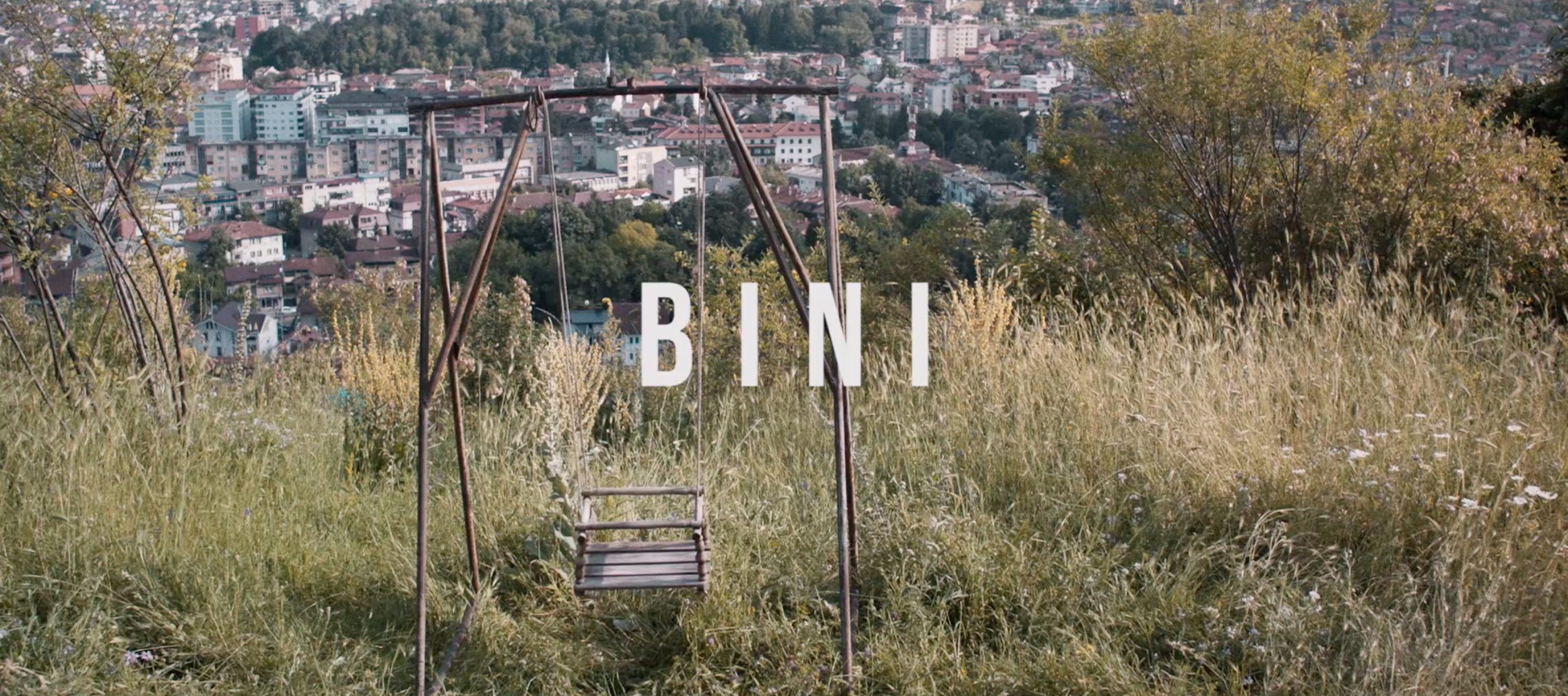
If you know anything about the Student Academy Awards, you’re probably aware of the foothold that USC, NYU, UCLA, Columbia, Chapman, and AFI hold in the Narrative Feature category (though AFI surprisingly landed no finalists this year!). Which is why it’s all the more impressive when a film student makes it to the finals without having attended one of these stalwart institutions. This year, we don’t have one, but three finalists from lesser-known (but clearly no less impressive) institutions. Among them is Erblin Nushi’s BINI, a harrowing portrait of the Kosovo war that ravaged the country from 1998 to 1999. Tracking the hours in which a young boy experiences the tragic death of his childlike innocence, BINI is a sobering autobiographical condemnation of war and the effect it has on the children caught in the crossfire: a fitting contribution to the current state of the European refugee crisis.
So my first question is an obvious one: can you explain your connection to the war in Kosovo for the reader?
I was the child that’s depicted in the film. It’s based on my life. I lived through this story when I was six. So it’s very personal. It was written based on those flashbacks that I had of the war, and I wanted to make a point of telling it from this child’s perspective. I don’t know if I’m off track now. *Laughs*
No please, go ahead. All of this is interesting!
Okay. I mean, I lived through all of this with my family and there was so much more than the few things you get to see in the film. But, I decided to tell this particular part of the story because it’s about how my life transitioned from being an innocent kid: having a great kid to being without a home, kicked out of our country and stripped of our identity, our documents beings taken away, basically left with nothing. So yeah, my connection with the film is that I lived through it.
At what point did you come to the United States?
After the war I actually moved back to Kosovo and only moved to the U.S. in 2010 when I was 18. So it’s only been eight years.
So you moved to the U.S. and then went to George Mason? Or did you go somewhere else first?
I went to a community college first: Northern Virginia Community College. My passion was acting, I had done it since I was 10 in Kosovo, so I pursued that. Received my theatre certificate and did community theatre. I took a three-year break after getting my certificate of just working, doing retail jobs. I hadn’t planned on going to a school and receiving a degree. A lot of people say you don’t need a diploma for a career in film. I sort of agree and disagree at the same time. But after working for a few years I realized I needed to go to school because I didn’t have the connections or prior knowledge. So that’s why I went to George Mason, which was right there in the town I was living. I was really lucky that they had a film program there. Most people wouldn’t go to a school that doesn’t specialize in film the way USC or UCLA does.
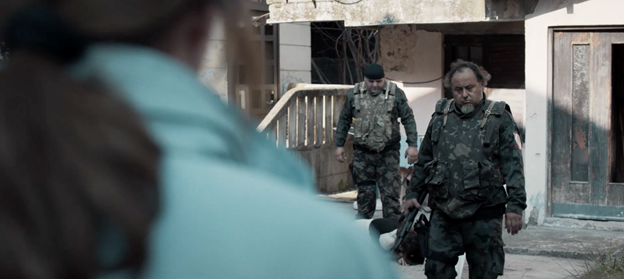
Can you talk a bit about George Mason’s film program?
George Mason has only had a film program for 10 years, kind of like my country. *Laughs* I was very lucky though. My teachers were great and brought a lot of professional experience from the real world to the class. Their mindset was that we are there because we want to do this for a living, so if a job presented itself, it was acceptable to skip class and work on a professional set. They really stress the “connection” aspect of filmmaking. It’s a very production-heavy school. This is how I did 10 projects in my two years at the school. Not everyone makes that many, but I made it a point to keep practicing on my craft.
Is BINI a thesis film?
Yes. BINI was the result of those years. As a thesis project it goes over a year. We write and develop in the first semester and film it in the second.
When was principal photography?
June of 2017. Because I had to go to another country to shoot this film, it made the most sense to do this over my summer break.
Watching this film, I got a lot of Andrey Zvyagintsev vibes. Who would you say were the filmmakers that most influenced your filmmaking?
A lot of my work is very personal. Whenever I look for inspiration from other established directors, it was hard to find someone who I could really relate to. But when I did my pitch, Alejandro Iñárritu was one of my favorite directors. His work inspires me a lot and his collaboration with Lubezki in the staging of long takes is really amazing. I think it’s because I come from theatre, I just love the time it gives the viewer to immerse them in a 360-degree environment, not just a steady shot on sticks. There are a lot of follow shots on the streets in BINI, but we didn’t have quite enough resources to get a Steadicam operator.
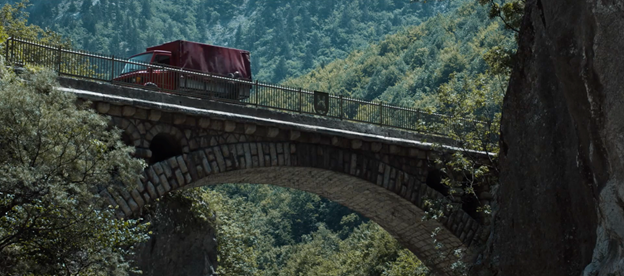
What was the process like trying to take your actors and crew back in time with you? What was the atmosphere like on set?
That was a really eye-opening experience for me as well. When I experienced war it was completely different from someone who was older than me, in the sense that my parents protected me from things. Information was kept from me for my own good. But when I went to shoot the film and reenacted scenes, it dawned on me, “Oh my God, I had gone through war.” And even though I knew that, and even though I had told people that I had been a refugee and all that, it never felt the way it did until I shot it. The actors and everyone were very emotional. Even the people living nearby would be very worried, because they knew those uniforms and those vehicles. That was interesting to see, because people are still affected by those images.
Can you talk a little bit about the scale of this undertaking? Clearly a lot of work was put into getting the right vehicles, uniforms, weapons, etc.
The interesting thing about that is that only a few things are preserved from the war. Because there was nothing left for us, the victim, to have, all we had were memories and images. So everything is a replica, of course. So we used a production company. We requested the actual rifles from the police department, but our film wasn’t at the scale to be approved for that. They insisted on a wrangler, so we had to use spray-painted BB Guns. I don’t know, apparently people think it looks real.
I didn’t notice.
Right, they were just plastic guns that we spray painted from green to black.
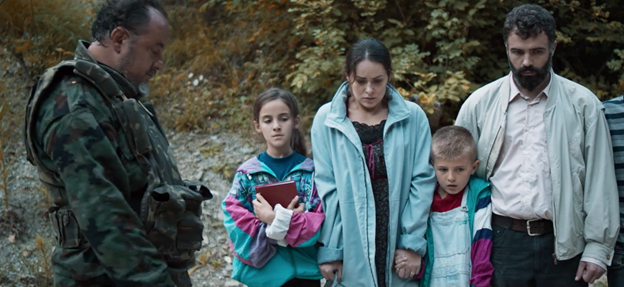
Where was your team from? Were they George Mason students or local filmmakers?
I had three George Mason students join us. One was an assistant editor who acted as our DIT on set. The other was a behind-the-scenes documentarian. The project had gotten a camera package grant from Sony, and instead of using that camera to shoot the film, we used it to make a documentary about the making of the film. And finally, our co-producer who was there for the pre-production came to Kosovo for the duration of the shoot. Everybody else was a local, though, which was my intention, because I wanted the people from my country to capture this story. It’s why my director of photography, editor, and composer were all from Kosovo.
What would you want your audience to take away from watching this film?
One thing? There’s a lot of things, but the reason I wanted to tell this most was to give a voice to the people of Kosovo, and let the world know that we exist as a nation. I still meet people today who don’t know of my country, so my biggest intention is to educate people about my home and about what happened there. Of course this film also contributes to the issue of the current refugee crisis and specifically how children are affected by war. That’s really the point of it all in a nutshell, and I know those things sound like they are separate, but they are also kind of linked.
Absolutely. What’s next for you and your career?
Well, I’ve been very grateful to go to festivals with this film, and it is a huge honor to be a Student Academy Award finalist. Right now, I’m working on preparing a feature. I think that’s everyone’s big dream and we’ll see what doors being a finalist opens.
Thank you so much for taking the time to talk to me.
Thank you for doing this series of articles.
Catch BINI on the festival circuit this year, and keep your eyes peeled for more of Erblin’s work down the line!



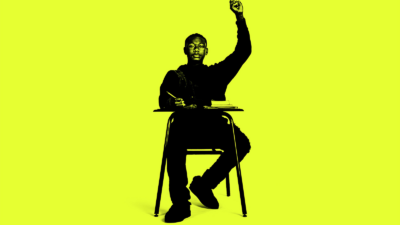

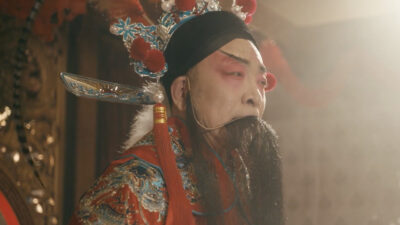
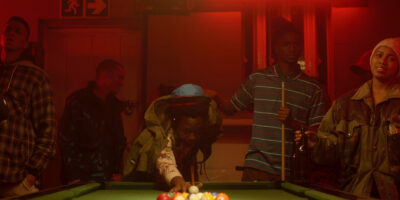
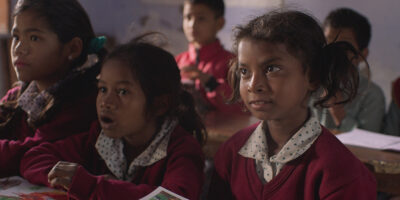
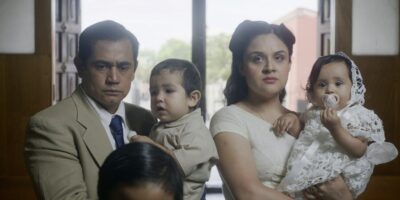
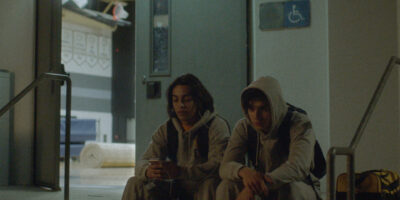
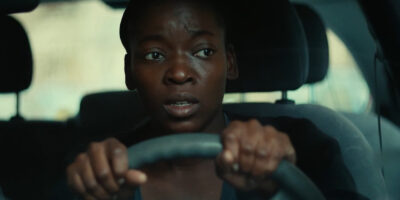





Comments